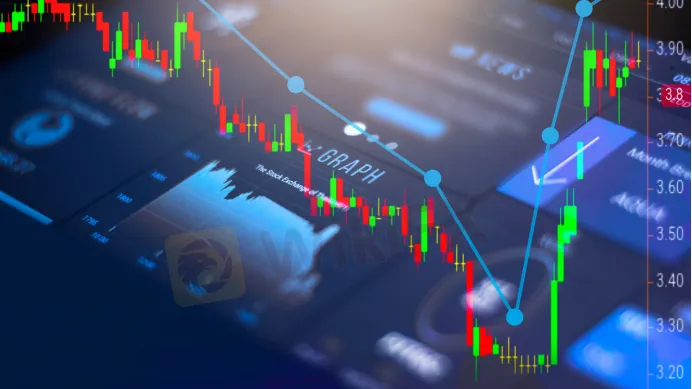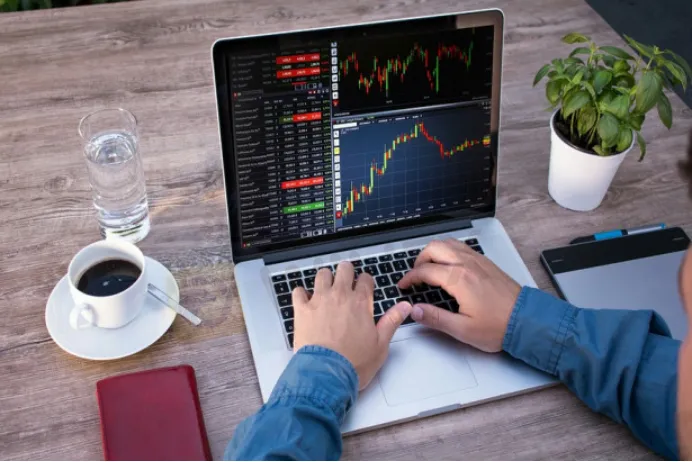简体中文
繁體中文
English
Pусский
日本語
ภาษาไทย
Tiếng Việt
Bahasa Indonesia
Español
हिन्दी
Filippiiniläinen
Français
Deutsch
Português
Türkçe
한국어
العربية
BEFORE TRADING IN THE FOREX MARKET, THESE ARE IMPORTANT FACTORS TO CONSIDER
Abstract:Forex trading is getting increasingly popular among retail traders all around the world. In recent years, Africa has experienced a significant increase in retail trading demand for CFDs and Forex, with South Africans leading the way. In the previous five years, the number of SA-based forex brokers offering CFDs and Forex has increased to 30+ brokerages.

Forex trading is getting increasingly popular among retail traders all around the world.
In recent years, Africa has experienced a significant increase in retail trading demand for CFDs and Forex, with South Africans leading the way. In the previous five years, the number of SA-based forex brokers offering CFDs and Forex has increased to 30+ brokerages.
“On top of that, online forex trading allows traders to benefit from leverage or borrowed money provided by forex brokers, which draws a large number of new traders to the online forex trading industry.” This leverage allows online traders to profit from minor fluctuations in currency pairings, but it may also result in losses if not employed correctly.
Forex trading is a high-risk industry, particularly for rookie online traders, because they frequently utilize large leverage in their trades, magnifying their losses. Currency pairings can vary dramatically on a daily basis, and inexperienced traders are likely to lose money on their transactions. Around 60% of forex traders lose money rather than gain money, according to commonly publicized statistics.
Trading Currency Pairs
The first stage in forex trading is to choose which currency pairs to trade. It is preferable to concentrate on only a few currency pairings. This is due to the fact that each currency pair has its unique connection with the market, which you must understand in order to properly trade that currency pair.
A few key factors influence the movement of each currency pair. Before beginning to trade, it is critical to comprehend these elements. The US dollar's movement, for example, is influenced by the Federal Reserve's interest rate, international commerce in which the US participates, and overall demand and supply of the currency.
As a result, when you first start out, merely learn and comprehend one prominent currency pair.
Spread
The spread is defined as the difference between the bid and ask prices.
The bid price is the price at which you may buy a currency pair and sell it later. The bid price is the price at which you may go short on a currency pair, whereas the ask price is the price at which you can go long on a currency pair. The discrepancy between the bid and ask prices is always present, and it is this disparity that the forex broker and other officials will benefit on.
A deal will be less beneficial for you if the spread is larger. As a result, you should always try to trade currency pairings with minimal spreads, as well as trading periods when the market is very liquid (which will mean that the spreads will be tighter).
Furthermore, each forex broker has their own spread. Compare the fees paid by several brokers and join up with the one that offers the narrowest spreads for the currency pairs you wish to trade.

Leverage
On currency pairings, forex brokers provide leverage. Leverage is the ratio of the amount of money required to initiate a transaction to the size of the holding you get. For example, if your leverage is 1:100, you may start a $10,000 trading position for every $100 you deposit.
Leverage allows you to trade far larger amounts of currency pairings than you could otherwise. As a result, the potential for profit or loss is substantially higher.
Leverage increases the risk of forex trading. If you make a bad transaction, you might lose a lot of money in a short amount of time. On the other hand, leverage can result in significantly bigger earnings.
As a result, every trader must carefully determine how much leverage they will employ in their transactions.
Trading Methodology
A trading plan is required for every trader. Which technical indicators will you employ, which currency pairings will you focus on, what will be the timing of your trades, what sort of leverage will you use, what risk management strategies will you use, and so on are all part of your trading strategy.
A trader's trading technique may make the difference between success and failure.
To establish a trading strategy that works for you, you should counsel or learn from skilled forex traders.
Goals
You should have financial objectives as a forex trader. What are you trading for and why are you doing so? What do you want to make in a month or a year?
Having trading objectives can aid you in determining your risk tolerance and capital requirements.
If your objectives are more attainable, you won't have to take as many chances. If your objectives are really challenging, you may need to take a few significant risks.
Keep in mind that you should only invest money that you can afford to lose.
Regulations and Safety in the Community
The Financial Sector Conduct Authority is South Africa's financial regulator (FSCA). The Financial Services Commission of South Africa (FSCA) regulates and allows forex brokers to operate in the country.
You should only deal with FSCA-licensed brokers if you are a South African FX trader. This is due to the fact that the financial authority holds licensed brokers accountable. Without this accountability, the broker has a significantly higher possibility of engaging in unethical actions.
It is regarded safe for traders to trade with a broker who is licensed by the FSCA. You will have no legal remedy if a forex broker does an unlawful conduct if you do not have a license. Furthermore, you should aim to deal with a broker who has a South African office.
Risks
Risk is an inherent component of forex trading. Successful forex traders are aware of the risks they face and take measures to mitigate them. Having a stop-loss for each transaction is one of the most common strategies of management during forex trading. There are, however, numerous additional options, such as employing lesser leverage.
Before you begin trading forex, you should have your own risk mitigation strategies in place. These risk-mitigation techniques can help you prevent or reduce losses while still maximizing profits.
On a daily basis, no one can consistently anticipate the price changes of currency pairings. As a result, you should be extremely cautious about how much money you put into your transactions.
Bias and Emotions
Trading may be a very emotional experience. Because you're dealing with actual money, each trade might bring up a lot of emotions.
Successful forex traders, on the other hand, understand that emotions are a hindrance to good forex trading. Emotions might make it difficult to decrease your losses and increase your gains. In forex trading, time is crucial, and emotions may affect the timing of your trades.
As a result, it's critical to maintain calm and mindfulness during forex trading, rather than allowing emotions and prejudice to get in the way. For skilled South African traders, forex trading may be successful, but it is not without danger. Before you begin, you need first master the fundamentals of forex trading. Opening a demo account with a broker to practice without risking real money is a terrific way to get started with forex trading. Keep in mind that you should only register with an FSCA-licensed broker.

Disclaimer:
The views in this article only represent the author's personal views, and do not constitute investment advice on this platform. This platform does not guarantee the accuracy, completeness and timeliness of the information in the article, and will not be liable for any loss caused by the use of or reliance on the information in the article.
Read more

Tradu Introduces Tax-Efficient Spread Betting for UK Traders
Tradu’s introduction of tax-efficient spread betting and groundbreaking tools like the Spread Tracker signals a new era of accessible, competitive, and innovative trading solutions for UK investors.

Trading Lessons Inspired by Squid Game
The popular series Squid Game captivated audiences worldwide with its gripping narrative of survival, desperation, and human nature. Beneath the drama lies a wealth of lessons that traders can apply to financial markets. By examining the motivations, behaviours, and strategies displayed in the series, traders can uncover valuable insights to enhance their own approach.

RM5.9M Lost to "Davidson Kempner Capital Management" Facebook Scam
A private contractor in Malaysia faced a devastating loss of over RM5.9 million after falling victim to a fraudulent investment scheme promoted on Facebook. Tempted by the scheme’s impressive claims and credentials, the victim began investing in September 2024. The investment process required him to download an application called A-Trade, which was readily available on the Apple Store.

Challenge Yourself: Transform from Novice to Expert
From a forex novice to a trading expert, all it takes is this one opportunity! Join us for the Forex Beginner's Advancement Journey challenge and unlock your potential! Here, if you're a beginner, participating in the event and posting on selected topics will not only deepen your understanding of forex basics and help you advance but also earn you a Learning Encouragement Award. For those with some experience in forex, discussing insights under the event topics will allow you to exchange experiences and share techniques with like-minded peers, while also having the chance to win a Perspective Sharing Award! Come challenge yourself and break through the limits of forex trading together!
WikiFX Broker
Latest News
SQUARED FINANCIAL: Your Friend or Foe?
Big News! UK 30-Year Bond Yields Soar to 25-Year High!
High-Potential Investments: Top 10 Stocks to Watch in 2025
Why Is Nvidia Making Headlines Everywhere Today?
Discover How Your Trading Personality Shapes Success
US Dollar Insights: Key FX Trends You Need to Know
FINRA Charges UBS $1.1 Million for a Decade of False Trade Confirmations
BI Apprehends Japanese Scam Leader in Manila
Bitcoin in 2025: The Opportunities and Challenges Ahead
Join the Event & Level Up Your Forex Journey
Currency Calculator






